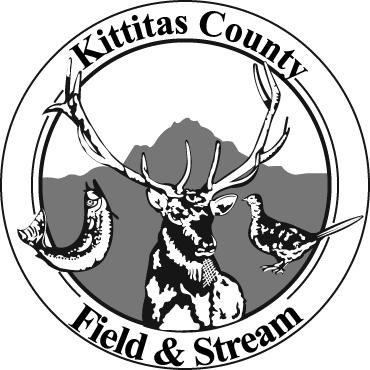So, we have our Washington State Senate Resolution honoring our “Families Outdoor Heritage,” and we are attracting broad support for legislation to create our Washington Children’s Outdoor Bill of Rights. Now, we need an anthem – a song inspiring young adults to create tomorrow’s outdoor families.
We have long known that an inspiring story is more effective in bringing about changes in attitude than a dire threat. Thanks to some forward-thinking storytellers in Nashville, I believe I have found our anthem. These storytelling songwriters take us back to the basics: the answer to carrying on family outdoor traditions lies in the careful selection of proper mates—those who will be making the outdoor-connected children and families of tomorrow.
No doubt, you have heard the song “Ticks.” (You will find a performance of it at www.youtube.com/watch?v=3tiPndMqxLQ.) Under all the fun and rhythm, I invite you to see that “Ticks” is a serious training song for the men and women tasked with securing the future of our outdoor traditions – our outdoor heritage.
Brad Paisley, Tim Owens and Kelley Lovelace wrote the song. They are clearly among the most holistically-thinking, far-sighted outdoor nuts in the world today. When they pitched the song to Arista Nashville/Sony BMG, their label, the executives must also have been caught up in the brilliance of this wise and ancient, yet fresh, approach to securing our outdoor future. Brad Paisley performed and recorded the song brilliantly; its subtle and understated message drove the song to the top of the country charts in 2007 and keeps it in regular airplay today.
This is a perfect approach, really. Even as some folks dismiss “Ticks” as an enjoyable –and funny – song about a guy trying to pick up a woman in a bar, they are absorbing valuable lessons about the fundamental path young men and women must follow to safeguard our outdoor heritage. The song is so sweet, and so scientifically sound, that it is a perfect anthem for the movement to maintain wild places and wild things forever.
That said, let’s take the song line by line, from beginning to end, and see what we can learn from our avid outdoorsman (the singer) as he considers the potential of an attractive young woman to be the mate he needs to help him rear outdoor-connected children. Note also how his story telling inspires and coaches other men and women seeking similar outdoor-oriented mates.
There are lessons and insights here for all of us. Bear with me over the next week or two, then, as we delve into the true meaning and impact of the lines and words of our anthem. Here is “Ticks.”
“Every time you take a sip…” Right off, we see that our outdoorsman is demonstrating his ability to observe quietly, over a period of time. Couple this clear survival skill with the way he acknowledges her ladylike manner of drinking, and already we see that he is sensing something special in this potential outdoor life companion.
“In this smoky atmosphere…” Here, our young mate-seeker makes an important observation, while avoiding criticism of the setting in which he and this interesting woman find themselves. Clearly, he is already setting the stage for a discussion of clean air and its importance to children, wild things and life in general.
“You press that bottle to your lips…” This word choice is brilliant, really. In one phrase, he notes the strength in the woman’s hands (critically important, if they are to build a sound life and home for the children they may make – if all tests are passed), and her eye-hand coordination which places the bottle firmly but gently upon her mouth. Such eye-hand coordination will be critical in successful parenting of outdoor kids.
“And I wish I was your beer…” This is a statement with a plethora of subtle undercurrents. If he was her beer, he would be able to firsthand know the strength of her grip, important in any number of family decisions they may be called upon to make. Further, given that beer is really the pinnacle of foods which can be made from barley, malt and hops, he is assuring her that he would joyfully assume his part in the life-long task of nourishing her well-being, and that of their children – not to mention helping them slake thirst.
“In the small there of your back…” Here, now, we have easily slipped back to a demonstration of our singing outdoorsman’s observation skills. Here, also, is an unspoken admiration for the shape and strength of her lower back. While thus more seriously considering her as a possible mate, he builds anticipation for his next observation.
Next week, we will continue our study and analysis of this anthem for creating outdoor families,




